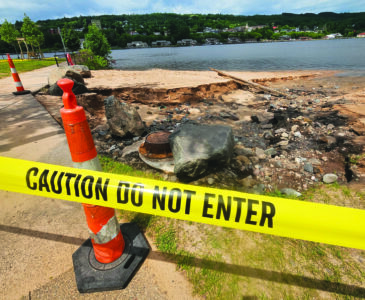Safety is key to great holiday weekend

Courtesy graphic
Editor’s Note: This is part two of a series on fireworks, precautions, laws and safety tips for staying safe during the holiday.
In December 2011, Gov. Rick Snyder signed P.A. 256 of 2011, Michigan Fireworks Safety Act, which allows the sale and use of consumer-grade fireworks in Michigan.
Consumer fireworks are fireworks that are designed to produce visible and/or audible effects by combustion, such as firecrackers, Roman candles, and bottle rockets, states the Michigan Municipal League.
The University of Michigan on July 9, 2021, posted an article titled “Serious fireworks injuries doubled after Michigan Law changed,” reported that: “But a new study shows that after the policy went into effect, the number of patients getting care for fireworks-related injuries at one of the state’s largest trauma centers doubled, stated author, Kevin Chung, a U-M professor of plastic surgery and hand surgeon at Michigan Medicine, U-M’s academic medical center, who was also one of the study’s researchers.
Almost all of the increase came from a jump in injuries caused by large airborne fireworks launched from tubes called mortars, Chung wrote. That’s the same type that killed a professional hockey player who was visiting Michigan over the July 4, 2021 weekend.
The 2011 law, which went into effect in January 2012, Chung stated, was intended to counter the unregulated use of airborne fireworks purchased in states where they were legal, and to avoid the resulting tax revenue loss to the state.
The U-M study found that from January 2012 to December 2018, the number of patients treated at Michigan Medicine for fireworks injuries rose to 160. Nearly half – 74 patients – were injured by mortars, up from 20 in the years before the law changed.
Chung concluded his article by saying fireworks injuries are common.
“These preventable injuries that lead to long-term consequences when the hand is blown up, which invariably ends with loss of fingers and sometimes the whole hand,” he said. “During this year’s July 4th holiday (2021), I have had to care for patients whose lives are forever changed by firework injuries and who required a series of complex reconstruction just to preserve some semblance of hand function. The personal, economic and society consequence of this preventable injury is immeasurable.”
Even before the U-M study was conducted last year, the Michigan Municipal League released a list of 2018 amendments authorizing more local government control over fireworks.
Among those amendments are;
A local unit of government may enact an ordinance regulating the ignition, discharge, and use of consumer fireworks, including, but not limited to, an ordinance prescribing the hours of the day or night during which a person may ignite, discharge, or use consumer fireworks. If a local unit of government enacts an ordinance under this subsection, the ordinance shall not regulate the ignition, discharge, or use of consumer fireworks on the following days after 11 a.m.:
(a) December 31 until 1 a.m. on January 1.
(b) The Saturday and Sunday immediately preceding Memorial Day until 11:45 p.m. on each of those days.
(c) June 29 to July 4 until 11:45 p.m. on each of those days.
(d) July 5, if that date is a Friday or Saturday, until 11:45 p.m.
(e) The Saturday and Sunday immediately preceding Labor Day until 11:45 p.m. on each of those days.
An ordinance shall impose a civil fine of $1,000 for each violation of the ordinance and no other fine or sanction. The ordinance must provide for the remittance of $500 of the fine collected under the ordinance to the local law enforcement agency responsible for enforcing the ordinance.
Lt. Nick Roberts of the city of Houghton Police Department said Houghton follows these amendments. In addition, however, he said that Houghton is also guided by state fire bans, as well.
“If there are burn bans in effect,” he said, “you can’t light them off, anyway,” he said. “People do, though.”
The city also abides by the city’s fire chief, said Roberts. He will abide by what Michigan states.
“We’ve had fires in the past, here in the city from fireworks going off,” he said. “Luckily, no houses caught on fire, but we’ve had property fires.”
Roberts said also that the city of Houghton obeys state laws stipulating that consumer-grade fireworks only be ignited from personal property. It is illegal to ignite fireworks on public property (including streets and sidewalks), school property, church property, or another person’s property without their express permission. State law makes it illegal to discharge fireworks when intoxicated or under the influence of drugs.
When dealing with fireworks, especially airborne types, they are not remaining on private property when they are airborne, said Roberts, but using common sense, exercising proper parental supervision, and following the guidelines of the U.S. Consumer Product Safety Commission will keep people and property safe while enjoying the Fourth of July weekend.




